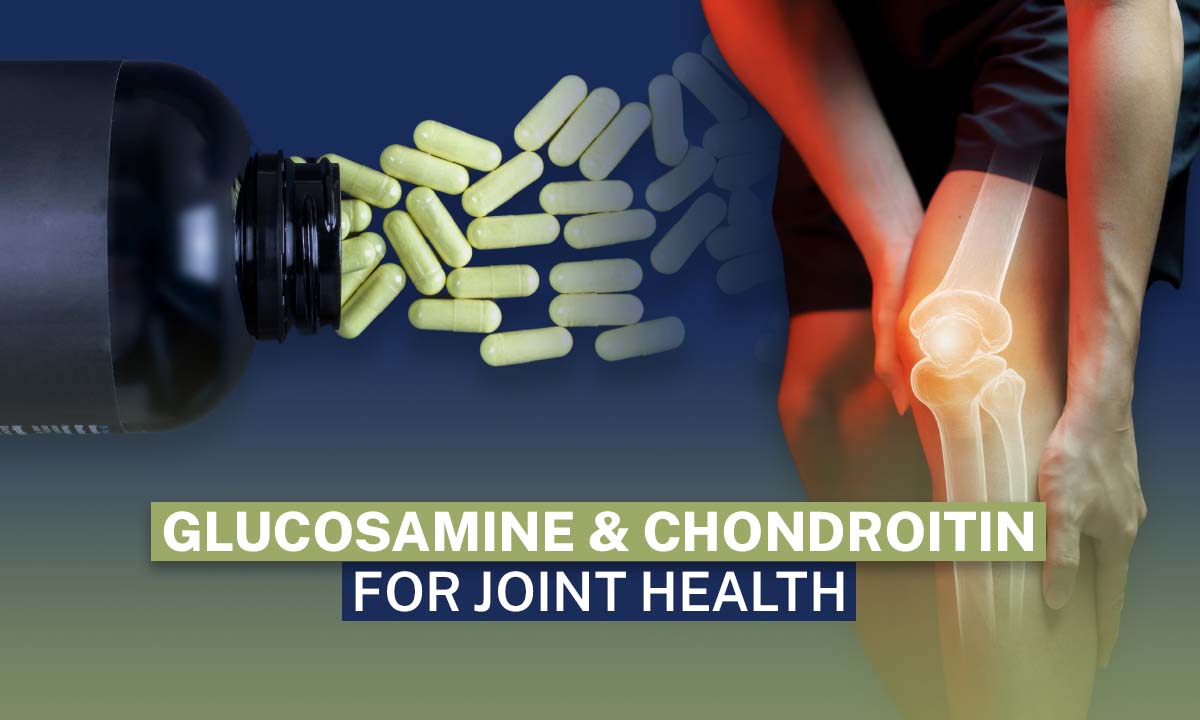What are they?
Chondroitin is found naturally in cartilage, where it helps prevent tissue breakdown and provides mechanical support for the joints.
Glucosamine occurs naturally in almost all human tissues, but is highly concentrated in connective tissues (joints) and cartilage.
The body uses glucosamine to make glycosaminoglycans like hyaluronic acid, an integral part of all connective tissues, being most abundant in skin.
Together chondroitin and glucosamine are structural components present in both cartilage and joints, playing a crucial role in providing these tissues with elasticity, strength, and flexibility.
Mechanism of action
Chondroitin draws water into cells, which helps with hydration and with mechanical support in the joints. It also helps chondrocytes — the cells that make up cartilage — to regenerate more efficiently, and seems to slow down cell death in these cells.
Chondroitin also has anti-inflammatory effects, inhibiting the expression of immune factors like interleukin-1 and prostaglandins, which may help in arthritis and other diseases of ageing.
Both seem to promote collagen production and reduce it’s degradation.
Benefits
Chondroitin is most commonly used to ease the symptoms of osteoarthritis, and is often taken with glucosamine.
Chondroitin supplementation may help with pain and joint stiffness, and may slow down the progression of the disease, robust research is still lacking.
It could be beneficial as an anti-aging and anti inflammatory supplement used for other degenerative diseases, not only osteoarthritis.
Chondroitin may also be used in people with recurrent bladder infections.
The use of chondroitin supplements, alone or in combination with glucosamine, has been associated with a lowered risk of colon cancer in observational studies.
More controlled trials are needed to support ay of these findings.
Dosage
Dosage recommendations range from 800 mg–1200 mg for chondroitin and 1500 mg per day for glucosamine. This may be taken as a single dose or in 2–3 doses.
Safety
There are no known interactions between glucosamine and medications. However, it may enhance the anticoagulant effect of warfarin, a blood thinning medication, increasing the risk of bleeding and bruising.
Those with shellfish allergy must also observe caution.
Chondroitin is also considered safe; very few side effects are reported at the recommended dosages. Occasionally, chondroitin sulfate supplements may cause mild gastrointestinal side effects, such as nausea or abdominal cramps.
Over-the-counter supplements are not regulated by the FDA, these may contain far less chondroitin than stated on the label, and in some cases almost none.
With this in mind, those interested in supplementing with chondroitin to ameliorate osteoarthritis should consider seeking a prescription for pharmaceutical products, after consulting with your doctor.
Takeaway
As per the existing studies and what I’ve observed in my clinical practice, a general collagen supplement or type II collagen supplement specifically targeting joint health seems to be more effective than chondroitin/glucosamine supplements, alone or in combination.
Inflammation and oxidative stress drive joint degeneration. Hence other, more potent anti inflammatory and antioxidant supplements must be added to the chondroitin/glucosamine stack for faster recovery.
~ Shwetha Bhatia, Registered Dietitian (Indian Dietetic Association)





